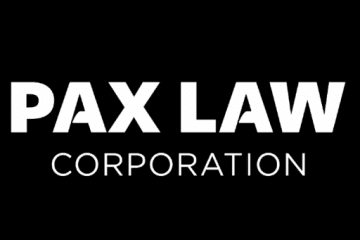Contesting a will can be a complex and emotionally charged process, especially in British Columbia (BC), where specific legal frameworks govern the validity of wills. Whether driven by perceived inequities, questions of capacity, or allegations of undue influence, challenging a will requires a clear understanding of the legal landscape. This article provides a comprehensive guide to the steps and challenges involved in contesting a will in BC, offering insights into the legal grounds for challenges, the documentation required, and the role of mediation, among other aspects.
Table of contents
Understanding the Basics of Contesting a Will

Contesting a will involves legally challenging the validity or terms of a deceased person’s will. In BC, the Wills, Estates and Succession Act (WESA) provides the legal framework for such contests. To initiate a challenge, an interested party, often a family member or potential beneficiary, must file a claim in court. The process is typically initiated by serving a notice of dispute, which temporarily halts the probate process until the dispute is resolved. Understanding these foundational steps is crucial for anyone considering contesting a will.
The first step in contesting a will is to determine the standing of the challenger. Not everyone can contest a will; typically, only individuals with a financial interest in the estate, such as beneficiaries or those who would inherit under intestacy laws, have the legal standing to file a challenge. Once standing is established, the challenger must act promptly, as there are strict time limits for filing a dispute, often starting from the date of probate.
It is also essential to consider the potential costs involved. Contesting a will can be expensive, both financially and emotionally. Legal fees can accumulate quickly, and there is no guarantee of success. Therefore, potential challengers must weigh the potential benefits against the costs and risks involved in pursuing a legal challenge.
Finally, understanding the potential outcomes is critical. If a will is successfully contested, the court may revise its terms, invalidate specific provisions, or, in some cases, declare the entire will void. However, the court may also uphold the will as it stands, leaving the challenger with no changes. Understanding these possibilities helps set realistic expectations for the process.
Legal Grounds for Challenging a Will in BC
Several legal grounds exist for contesting a will in BC, each requiring specific evidence and legal arguments. One common ground is the lack of testamentary capacity. Challengers may argue that the testator did not have the mental capacity to understand the nature and consequences of their will at the time of its creation. Demonstrating lack of capacity typically involves presenting medical evidence or testimony from individuals familiar with the testator’s mental state.
Undue influence is another frequent ground for challenging a will. This involves proving that the testator was coerced or manipulated into making certain provisions in their will. Evidence of undue influence might include testimony about the testator’s vulnerability, the influencer’s opportunity to exert control, and any sudden or unexplained changes to the will that benefit the alleged influencer disproportionately.
Fraud or forgery is also a basis for contesting a will. In such cases, the challenger must provide evidence that the will was altered or created through deceitful means. This might involve handwriting analysis or testimony from witnesses who can attest to discrepancies in the will’s execution or contents.
Finally, challengers may argue that the will does not comply with legal formalities. BC law requires specific procedures for a will to be valid, such as being in writing and signed by the testator in the presence of two witnesses. If these formalities are not met, the will could be deemed invalid. Each of these grounds requires a thorough understanding of legal principles and a strategic approach to gathering and presenting evidence.
Gathering Necessary Documentation and Evidence
Compiling the necessary documentation and evidence is a critical step in contesting a will. This process often begins with obtaining a copy of the will and any related documents, such as previous versions of the will, codicils, or estate planning records. These documents provide a foundation for understanding the testator’s intentions and any changes made over time.
Medical records can be crucial in cases involving claims of lack of testamentary capacity or undue influence. These records may include assessments from doctors or mental health professionals that speak to the testator’s cognitive abilities and mental state around the time the will was executed. Additionally, obtaining statements from individuals who interacted with the testator can provide insight into their mental condition and susceptibility to influence.
Witness statements are another vital source of evidence. Individuals who were present during the drafting or signing of the will can offer valuable testimony regarding the testator’s state of mind and the circumstances under which the will was executed. These statements can help corroborate or refute claims of undue influence, fraud, or lack of capacity.
Finally, financial records and correspondences, such as emails or letters, may reveal the testator’s intentions and any external pressures they faced. These materials can help build a comprehensive picture of the testator’s decision-making process and the factors influencing the content of the will. Gathering a robust set of evidence is essential for substantiating a legal challenge and increasing the likelihood of a successful outcome.
The Role of Mediation in Will Disputes
Mediation plays an increasingly significant role in resolving will disputes in BC. This process involves a neutral third party, the mediator, who facilitates discussions between the parties involved in the dispute to reach a mutually acceptable resolution. Mediation offers several advantages, including being less adversarial and more cost-effective than court proceedings, making it an appealing option for many disputing parties.
One of the primary benefits of mediation is the opportunity for parties to communicate openly and directly about their concerns and interests. This dialogue can lead to creative solutions that might not be available through a court ruling. For instance, parties might agree on a redistribution of assets that better reflects the testator’s perceived intentions or addresses the needs of specific beneficiaries.
Mediation also provides a confidential setting, which can help preserve family relationships that might otherwise be strained by a public court battle. The privacy of mediation allows parties to discuss sensitive issues without the fear of public scrutiny or judgment, which can be particularly important in disputes involving family dynamics or personal grievances.
While mediation can be effective in resolving will disputes, it is not suitable for every situation. Cases involving allegations of serious misconduct, such as fraud or undue influence, may require the formal procedures and authority of a court to resolve. Nonetheless, for many will disputes, mediation offers a valuable alternative to litigation, providing a platform for negotiation and compromise.
Navigating the Court Process for Will Contests
If mediation fails or is deemed inappropriate, the next step is to navigate the court process for contesting a will. This process begins with filing a notice of civil claim in the Supreme Court of British Columbia. The claim must outline the grounds for challenging the will and provide supporting evidence. Once the claim is filed, the probate process is typically paused until the dispute is resolved.
The court process involves several stages, including hearings, discovery, and potentially a trial. During discovery, both parties exchange documents and information relevant to the case. This phase allows each side to assess the strength of the other’s evidence and arguments, which can sometimes lead to a settlement before trial.
If the case proceeds to trial, both parties present their evidence and arguments before a judge. The trial process can be lengthy and complex, often requiring expert testimony, such as that from medical professionals or handwriting analysts, to substantiate claims of incapacity, undue influence, or fraud. The judge will ultimately decide based on the evidence presented and the applicable legal principles.
Throughout the court process, legal representation is crucial. An experienced estate lawyer can help navigate the procedural requirements, develop a compelling case, and advocate effectively on behalf of the challenger. While the court process can be daunting, a well-prepared legal strategy can significantly impact the outcome of a will contest.
Common Challenges Faced in Will Disputes
Contesting a will presents several common challenges that can complicate the process. One significant challenge is the emotional toll on all parties involved. Will disputes often arise in the context of family relationships, where emotions run high, and unresolved conflicts may surface. Managing these emotions while focusing on the legal aspects of the case can be difficult for challengers and beneficiaries alike.
Another challenge is the burden of proof. The party contesting the will must provide sufficient evidence to support their claims, whether related to lack of capacity, undue influence, or fraud. Gathering and presenting this evidence requires careful planning and a thorough understanding of legal standards, which can be a daunting task without professional legal assistance.
Financial considerations also pose a challenge. The costs associated with contesting a will, including legal fees, expert witness fees, and court costs, can be substantial. Additionally, there is always the risk that the challenge will be unsuccessful, resulting in financial loss without any change to the will’s provisions. These financial risks must be carefully weighed before proceeding with a challenge.
Finally, time constraints can be a significant hurdle. There are strict deadlines for filing a will contest in BC, and missing these deadlines can result in losing the right to challenge the will altogether. Ensuring that all necessary steps are taken promptly and efficiently is crucial to maintaining the right to contest the will and achieving a favorable outcome.
Contesting a will in BC involves navigating a complex legal landscape, with numerous steps and potential challenges along the way. From understanding the legal grounds for a challenge to gathering evidence and navigating the court process, each phase requires careful consideration and strategic planning. While mediation offers an alternative path to resolution, the court process remains a vital avenue for resolving disputes that cannot be settled otherwise. By understanding the intricacies of will contests and the common challenges faced, individuals considering such a course of action can better prepare themselves for the journey ahead, ensuring they are equipped to pursue their claims effectively and with confidence.
Important: Please note that the information here is not meant to be legal advice. Do not solely rely on the information given here; it is important that you consult with a lawyer regarding any legal advice. Pax Law Corp. is not responsible for any reliance on the contents of this blog post. Any faces posted on this blog post is totally AI generated and they are not intended to represent any person in the real world. Any similarities are completely coincidental.
1. What does it mean to contest a will in BC?
Contesting a will in BC means legally challenging the validity or provisions of a deceased person’s will under specific legal grounds such as lack of testamentary capacity, undue influence, fraud, or failure to meet legal formalities.
2. Who can contest a will in British Columbia?
In British Columbia, individuals with a financial interest in the estate, such as beneficiaries or those who would inherit under intestacy laws, have legal standing to contest a will.
3. How do you contest a will in BC?
To contest a will in BC, the challenger must file a notice of dispute, which temporarily halts the probate process. The challenger must also have valid legal grounds for the dispute and provide supporting evidence.
4. What are the common legal grounds for contesting a will in BC?
The common grounds include lack of testamentary capacity, undue influence, fraud or forgery, and failure to meet the legal formalities required under BC law.
5. How does a lack of testamentary capacity affect a will?
Lack of testamentary capacity refers to the inability of the testator to understand the nature and consequences of their will. If proven, the will may be deemed invalid or revised.
6. What is undue influence in the context of a will contest?
Undue influence occurs when someone coerces or manipulates the testator into making decisions they wouldn’t have made otherwise. This can lead to the invalidation of the will’s provisions.
7. How can fraud or forgery impact a will?
If a will is altered or created through deceitful means, such as forgery or fraud, it may be contested and potentially declared invalid in court.
8. What are the formalities required for a valid will in BC?
In BC, a will must be in writing, signed by the testator, and witnessed by two individuals who are not beneficiaries. Failure to meet these formalities can result in the will being invalid.
9. How does the Wills, Estates and Succession Act (WESA) relate to contesting a will?
The WESA governs the validity of wills and the distribution of estates in BC. It provides the legal framework for contesting a will based on specific grounds such as undue influence or lack of capacity.
10. Can you contest a will after the probate process begins?
Yes, a will can be contested after the probate process begins by filing a notice of dispute. This temporarily halts the probate process until the dispute is resolved.
11. How important is legal standing when contesting a will in BC?
Legal standing is crucial, as only individuals with a financial interest in the estate, like beneficiaries, can contest a will. A person without such an interest typically cannot file a challenge.
12. How long do you have to contest a will in BC?
In BC, there are strict time limits for contesting a will, typically starting from the date of probate. It is essential to act promptly to avoid missing the deadline.
13. What role do medical records play in contesting a will?
Medical records are important when contesting a will on grounds of lack of testamentary capacity or undue influence. They provide evidence of the testator’s mental state at the time the will was made.
14. Can a will be contested on the grounds of emotional manipulation?
Emotional manipulation may be considered as part of a broader claim of undue influence. Evidence would need to demonstrate that the testator was coerced due to emotional pressures.
15. Is contesting a will in BC expensive?
Yes, contesting a will can be expensive due to legal fees, expert witness costs, and court fees. It is important to weigh these financial risks before proceeding.
16. Can mediation help resolve will disputes in BC?
Mediation is an alternative dispute resolution process that can be used to resolve will disputes in BC. It is often less adversarial and more cost-effective than going to court.
17. What are the advantages of mediation in will disputes?
Mediation allows for open communication between parties, confidentiality, and creative solutions that may not be available in a court ruling, making it a preferred option for some.
18. Can mediation be used if fraud or forgery is suspected in a will?
Mediation may not be suitable for cases involving serious misconduct like fraud or forgery, as these issues may require formal court procedures for resolution.
19. What happens if mediation fails in a will dispute?
If mediation fails, the next step is to proceed to court, where a judge will make a final decision based on the presented evidence and legal grounds.
20. How do you file a will contest in BC court?
To file a will contest in BC, a notice of civil claim must be filed in the Supreme Court, outlining the grounds for challenging the will and providing supporting evidence.
21. What is the court process for contesting a will?
The court process involves filing a claim, discovery, hearings, and potentially a trial. During discovery, both parties exchange relevant information and documents.
22. What is discovery in the context of a will contest?
Discovery is the process of exchanging documents and information relevant to the case. It allows both parties to evaluate the evidence and may lead to a settlement before trial.
23. What happens during a trial for a will contest?
During a trial, both parties present evidence and arguments before a judge, who will then decide whether the will is valid based on the presented facts and legal standards.
24. Do I need a lawyer to contest a will in BC?
Yes, legal representation is highly recommended when contesting a will, as an experienced estate lawyer can help navigate the complex court process and develop a strong case.
25. What is the emotional impact of contesting a will?
Contesting a will can be emotionally challenging, especially if family dynamics are involved. It may lead to conflicts and tensions between family members.
26. How can emotional toll be managed when contesting a will?
Managing emotions requires focusing on the legal aspects of the case, seeking professional legal advice, and considering alternatives like mediation to reduce emotional strain.
27. What is the burden of proof in a will contest?
The challenger carries the burden of proving that the will is invalid based on the chosen grounds, such as lack of capacity or undue influence. This requires gathering strong evidence to support the claim.
28. What financial risks are involved in contesting a will?
The financial risks include legal fees, court costs, and the potential of an unsuccessful challenge, which may result in no changes to the will and financial loss.
29. How do time limits affect contesting a will in BC?
Strict deadlines exist for contesting a will in BC. Missing these deadlines can forfeit the right to challenge the will, making it essential to act promptly.
30. Can a will be contested if there is no financial interest in the estate?
Generally, only those with a financial interest in the estate, such as beneficiaries or potential heirs, have the standing to contest a will.
31. What is the role of witnesses in contesting a will?
Witnesses can provide vital testimony about the circumstances under which the will was executed, including the testator’s mental state, potential undue influence, and whether legal formalities were followed.
32. Can a will be contested if the testator was under duress?
Yes, if it can be shown that the testator was under duress, such as coercion or threats, the will may be invalidated.
33. What should I do if I suspect fraud in a will?
If you suspect fraud, you should gather evidence and consult a lawyer. Fraudulent activity, like forgery, is a valid ground for contesting a will in BC.
34. How does the court determine the validity of a will?
The court examines the evidence presented, including the testator’s mental capacity, compliance with legal formalities, and potential undue influence or fraud, to determine if the will is valid.
35. Can an executor contest a will?
Yes, an executor can contest a will, especially if they believe there are valid legal grounds to do so, such as fraud, undue influence, or lack of testamentary capacity.
36. Can you challenge a will based on changes made after the original will?
Yes, if the testator made changes to the will that were not properly executed, or if there is evidence of undue influence, those changes can be challenged.
37. How do you prove undue influence in a will contest?
Proving undue influence involves showing that the testator was manipulated or coerced by another person into making specific provisions in the will, often with testimony and supporting evidence.
38. Is it possible to contest a will if there are no witnesses?
While challenging a will without witnesses can be difficult, it is still possible if there is other compelling evidence, such as medical records or financial records that suggest the will was invalid.
39. How does a court handle disputes over testamentary capacity?
The court will evaluate medical evidence, testimony, and any relevant documentation to determine if the testator had the mental capacity to create a valid will.
40. What happens if a will is found to be invalid in BC?
If a will is found to be invalid, the court may determine that the deceased person’s estate should be distributed according to the previous valid will or under BC’s intestacy laws.
41. Can a will be contested if there is a previous valid will?
Yes, a previous valid will can be contested if there are legitimate grounds such as undue influence or fraud that affect the latest will.
42. Can I contest a will if I am not a beneficiary?
Generally, you must have a financial interest in the estate to contest a will, such as being a beneficiary or someone who would inherit under BC’s intestacy laws.
43. How does mediation differ from a court trial in will disputes?
Mediation is a private, non-adversarial process where parties work with a mediator to find a solution, while a court trial involves presenting evidence before a judge who makes a final decision.
44. How long does the will contest process take in BC?
The length of a will contest process can vary, but it may take several months to a few years, depending on factors like complexity, court schedules, and whether mediation is used.
45. Can family members contest a will in BC?
Yes, family members, especially those who would inherit under intestacy laws, often have legal standing to contest a will if they believe the will is invalid.



0 Comments